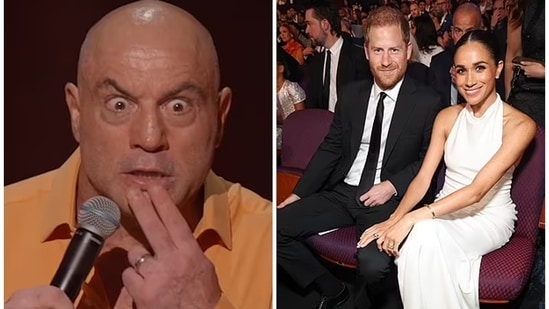Must Read
Prince Harry’s Visa Controversy: Privacy vs. Public Scrutiny
In a saga that has captured global attention, the legitimacy of Prince Harry's U.S. visa has come under fire, leading to a legal battle that raises significant questions about privacy and transparency.
The Heritage Foundation, a conservative think tank, has challenged the Duke of Sussex's immigration status, igniting debates that touch on the balance between public interest and individual rights.
The crux of the controversy stems from revelations in Prince Harry's memoir, “Spare,” where he candidly discusses his past drug use, including cocaine and psychedelics.
Typically, such admissions could jeopardize a visa application, prompting critics to speculate whether the royal's celebrity status swayed the Department of Homeland Security (DHS) in its approval process.
The Heritage Foundation's legal action seeks to unearth Prince Harry's visa application and related documents, asserting that the public deserves to know if he received preferential treatment.
Their argument hinges on the principle of government accountability, questioning whether immigration laws were applied equitably in this high-profile case.
In early 2023, federal courts ruled in favor of the U.S. government, stating that Prince Harry's right to privacy outweighed public interest.
Judge Carl J. Nichols reviewed the case in a closed session and found no wrongdoing on the part of the DHS, effectively bringing an end to the Heritage Foundation's initial challenge.
However, the think tank is not backing down.
Mike Howell, executive director of Heritage's Oversight Project, expressed frustration with the ruling, suggesting that redactions in the government's filings indicate something more troubling may be at play.
Howell emphasized that their pursuit of an appeal is driven by a commitment to ensure that immigration laws are applied fairly.
The Biden administration has staunchly defended its handling of Prince Harry's visa application, countering claims of impropriety with evidence presented in court.
Government lawyers assert that the information shared was sufficient and that further disclosures could infringe upon the Duke's privacy rights.
As the legal tussle unfolds, it has reignited broader discussions about the delicate balance between transparency and privacy, especially for individuals in the public eye.
Critics argue that celebrities like Prince Harry should not escape scrutiny, particularly when their legal situations could impact the general populace.
On the flip side, privacy advocates warn that forcing the release of Harry's immigration records might set a dangerous precedent, undermining protections for sensitive cases.
This debate underscores the complexities faced by public figures who navigate the fine line between seeking privacy and living in the spotlight.
For Prince Harry, this legal battle adds another layer to his already complicated relationship with the media and public perception.
Since stepping back from his royal duties and moving to California, he has encountered relentless scrutiny over his personal choices, leading some to question whether he genuinely seeks privacy or is simply courting publicity.
As the Heritage Foundation prepares for its appeal, immigration experts point out that U.S. visa decisions often involve a nuanced evaluation of various factors, including an applicant's character and contributions to society.
The outcome of this case could have far-reaching implications for how privacy and public interest are weighed in similar disputes involving prominent individuals.
With the Biden administration firmly defending Prince Harry's privacy, the future of his immigration records remains uncertain.
For now, the Duke continues to focus on his philanthropic endeavors and personal projects while the legal drama surrounding his visa status unfolds.
This situation serves as a reminder of the intricate dynamics at play when fame collides with legal accountability.
As the world watches, the ongoing legal proceedings will likely shape public policy regarding privacy rights for public figures, influencing how similar cases are handled in the future.
The intersection of celebrity, governance, and the law has never seemed more relevant, leaving many to ponder: should fame come with a higher level of scrutiny, or do public figures deserve the same privacy as everyone else?








































